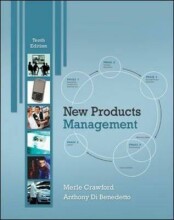Work times and recovery from work - Recovery from demanding work hours
7 important questions on Work times and recovery from work - Recovery from demanding work hours
Two bodily stress systems:
- Sympathetic adrenal medullary system (SAM):
- the brain stimulates the adrenal glands (bijnieren) to release catecholamines (adrenalin and noradrenalin) ➜ direct cardiovascular activation
- hypothalamic pituitary adrenal (HPA) system:
- Brain produce hormone that stimulate adrenal glands to release cortisol (‘the stress hormone’)
The allostatic load theory:
- accumulation of load effects (job stressors and incomplete recovery) may, in the long run, result in chronic and serious health problems due to malfunctioning allostatic systems (SAM, HPA etc.) --> allostatic load
Why do overtime/long work hours have adverse health effects?
- Lack of recovery mechanism
- behavioral lifestyle mechanism (not mutually exclusive)
- Higher grades + faster learning
- Never study anything twice
- 100% sure, 100% understanding
Three important features to counter abnormal work hours:
- Rapidly rotating shifts (1-3 night shifts before changing to day) are better in terms of effects that slowly rotating shifts, due to circadian disruption is neither fully diurnal nor nocturnal
- Forward rotating (morning ➜ afternoon ➜ night) are better than backward rotating shifts.
- Abnormal work schedules are often a source of psychological and emotional distress. The effects depend on the design of the schedule and the work/non-work conflict that is experienced.
Two types of recovery:
- internal recovery (during work hours)
- external recovery (after work hours)
Vacation may contribute to recovery from work through two mechanisms
- Passive mechanism: release from daily exposure to job demands and stressors
- Active mechanism: engagement in valued, pleasant and self-chosen non-work activities
Work time control (WTC):
The question on the page originate from the summary of the following study material:
- A unique study and practice tool
- Never study anything twice again
- Get the grades you hope for
- 100% sure, 100% understanding






























